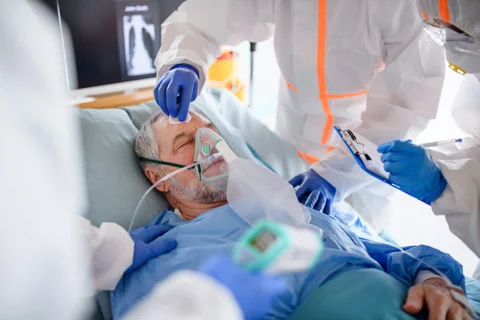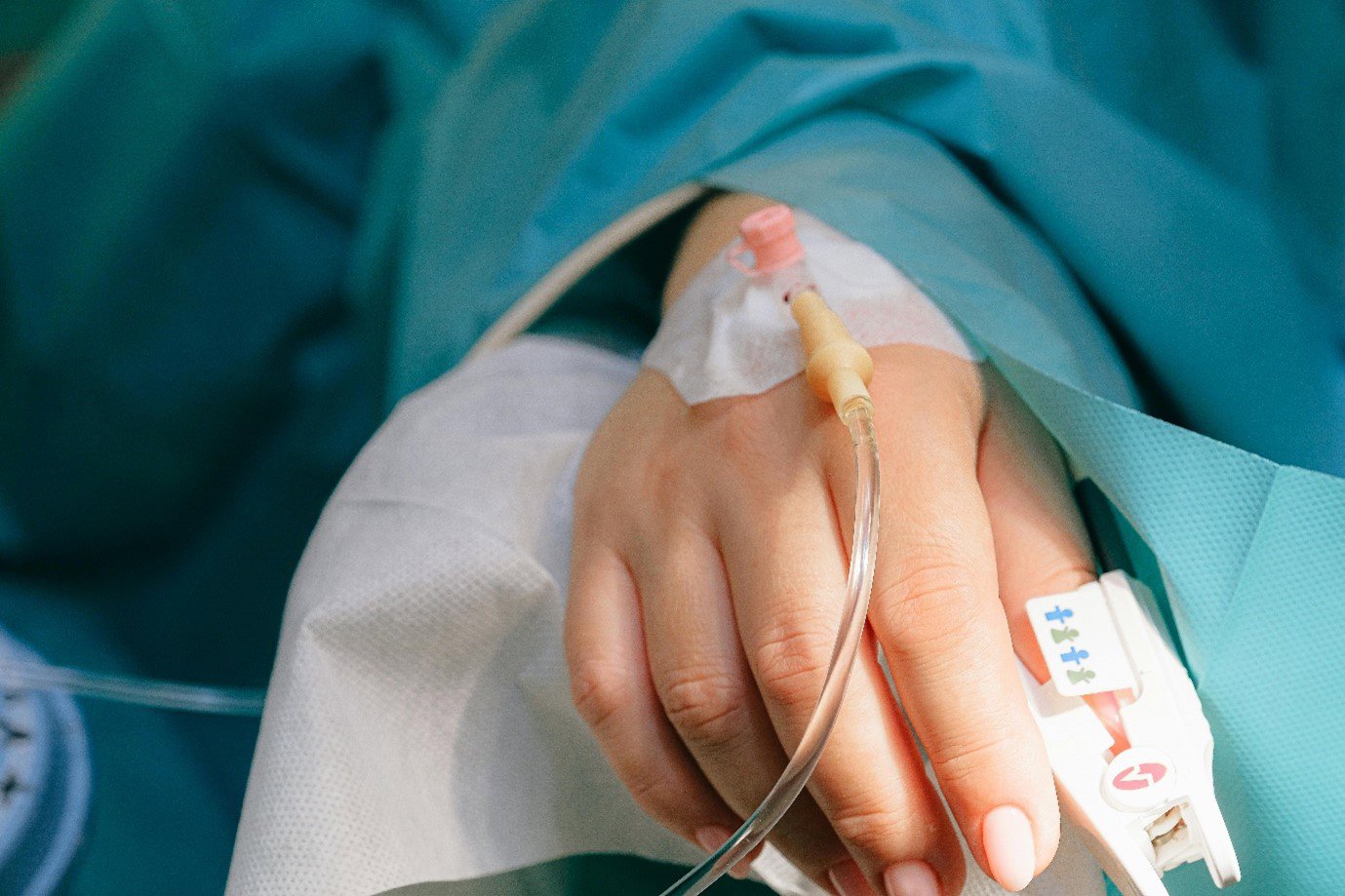What is Sepsis?
Sepsis, also known as ‘septic shock’ or ‘septicaemia’ may also be referred to as ‘blood poisoning’ and it is caused when the immune system ‘overreacts’ to an infection. The initial infection can start anywhere in the body, perhaps from a cut or a urine infection.
Various bacteria or viruses can cause it, and these will often be present quite safely in another part of your body. Dressed wounds are common problem areas, because some bacteria thrive in anaerobic (oxygen free) environments. Sepsis is not contagious which means that you cannot catch sepsis from another person, but some people are more likely to get an infection that could lead to sepsis, including:
babies under 1, particularly if they're born early (premature) or their mother had an infection while pregnant
- people over 75
- people with diabetes
- people with a weakened immune system, such as those having chemotherapy treatment or who recently had an organ transplant
- people who have recently had surgery or a serious illness
- women who have just given birth, had a miscarriage or had an abortion
Sepsis can be mild when it starts, but if left untreated, it can cause a ‘runaway’ cascade of defence responses with life threatening consequences.
Unfortunately, it’s not always possible to prevent sepsis but there are some things that you can do to help prevent infections that can lead to sepsis, including:
- keep up to date with vaccines, particularly for babies, children, older people and pregnant women
- clean and care for any wounds
- take antibiotics correctly – follow the instructions and take all your prescribed antibiotics, even if you feel better
- wash your hands regularly and teach children how to wash their hands well
What Are The Early Signs of Sepsis?
The signs of the infection are often clear but can be open to differing interpretations by your treating doctor. This isn’t necessarily wrong but can lead to difficulties arising when you’re pursuing a claim for compensation, especially if clear medical records aren’t kept at the time.
You can help by telling the doctor or nurse about:
- Immediate trauma or discomfort developing quickly in the general region of the trauma
- Pain which seems to be out of proportion with (or in a different area to) the location of the trauma
- Signs of infection such as a high temperature, disorientation, flu-like symptoms, vomiting, diarrhoea, dehydration, fever, malaise, weakness and/or muscle pain
- Areas of broken skin (such as pressure sores, for example) or discoloured skin (possibly, but not necessarily, red or black) around the infected area
- A particularly unpleasant smell coming from the infected area or gangrene
- A rapid deterioration in the person’s condition
Not all of these symptoms will be present in every case and each of them can be caused by entirely different conditions. However, it may help if you tell the treating medical staff about any symptoms you’re concerned about, although of course we don’t advise you to try telling the treating health professionals what to do. They know what they’re looking for so any information you can provide to them will be helpful in allowing them to identify the issue and treating it accordingly.
Keeping a note of your questions and the responses you receive can often help later, particularly in emergency situations. You can help to prevent a possible misdiagnosis by giving clear details of your previous medical history and any medication youre receiving.
Consequences of Sepsis
Whilst the consequences are often dependent on the bacterium or virus responsible, they are usually dramatic and severe so time is very much of the essence.
Sepsis may not necessarily result from the infection. To help with a prompt diagnosis, your clinicians should be trying to exclude the possibility of sepsis rather than assuming it isn’t present.
The ‘quick SOFA’ score (sequential organ failure assessment) is used where sepsis should be diagnosed if a patient has any 2 of these symptoms:
- Increased breathing rate
- A change in their level of consciousness
- Low blood pressure
Medical imaging also helps to identify the possible source of the infection.
What Happens After Diagnosis?
Sepsis needs treatment in hospital straight away because it can get worse quickly. Once a sepsis diagnosis has been made, 6 steps should be taken within the next hour:
- Improve oxygen levels
- Take blood samples
- Administer intravenous antibiotics
- Measure the build-up of lactate levels
- Rebalance fluid levels
- Accurately measure urine output.
These steps are called the ‘Sepsis Six’ and are the current international standard. They aim to ‘identify’, ‘treat’ and ‘prevent deterioration’.
Treatment will often occur in Intensive Care and a properly experienced specialist will need to carefully assess the nature and extent of your injury. The amount and type of treatment will likely require careful consideration by the medical team and different doctors may have different views.
The medical staff must still act within an acceptable range of medical opinion in providing the treatment and in attempting to prevent other injuries arising. Even if the treatment successfully kills the initial infection and stops the sepsis, patients may suffer severe consequences.
For example, the long-term organ damage, cognitive impairment, breathing difficulties and reduced mobility can all occur in extreme cases.
Can I Claim Compensation?
As with any medical condition, it’s important not to jump to the wrong conclusion. But while doctors are highly trained and cases of negligence are rare, sometimes things do go wrong, and you should be prepared for this.
In those circumstances, it may be appropriate to seek compensation after going through the official NHS Complaints Procedure. This procedure may assist you in understanding what happened, why certain decisions were taken and/or what went wrong. If you remain unsatisfied by this or believe that you are still entitled to compensation for negligence after going through this process, we’re here to help you.
Our team of qualified Medical Negligence Solicitors will undertake all necessary investigations for you, run your case from start to finish and arrange appointments with all appropriate medical specialists. This means that you don’t have to be concerned about the complexity or stress.
Our expert team will regularly provide you with support and clear, straightforward information and advice throughout the whole medical negligence claims process to reassure you and guide you every step of the way.
If you are looking for a no obligation chat about a possible medical negligence claim our friendly and dedicated team is ready and waiting to take your call on 0808 239 6043. Alternatively, you can request a call back and one of our team will contact you as soon as possible.










